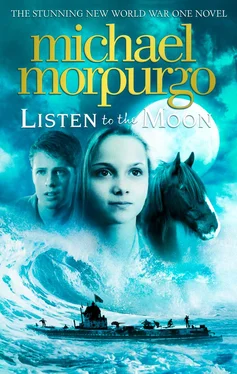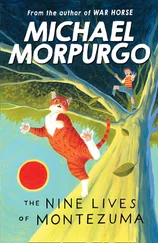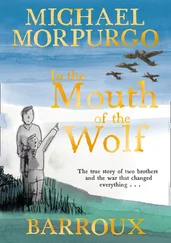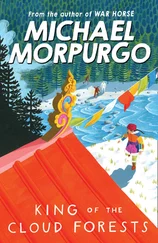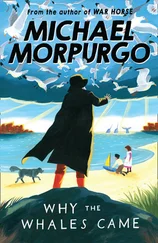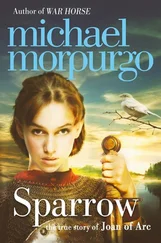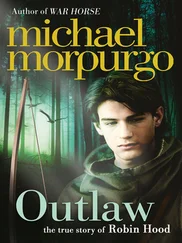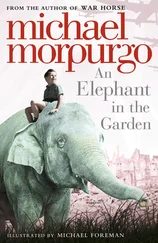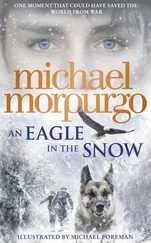Lucy has eyes like that , he thought. Eyes that look into you, unblinking, eyes that tell you nothing. Empty eyes.
STANDING THERE IN THE CORNER, Alfie forced himself to go on thinking of Lucy – anything to take his mind off the agony of his knuckles. He decided he was in two minds about her. He liked having her there in the house. He hadn’t been sure about it at first, mostly because his mother seemed to have become so preoccupied with Lucy that she seemed to have less time for him or for anyone else. Alfie had seen her before like this. It was how she’d been with Uncle Billy, during her long search for him, then her determined campaign, with Dr Crow’s help, to get him out of the asylum in Bodmin, and bring him home so she could look after him. He had understood then why she had to do it, as he understood now that it was the right and proper thing to do, to take Lucy Lost in. He was doing his best to persuade himself not to mind too much.
But he did mind, and he knew his father did too, though nothing had been said. He remembered then what his father always said to him, whenever he needed cheering up: “Always look on the bright side, Alfie.” It wasn’t easy, but as he stood there in the corner feeling miserable, his knuckles paining him, he tried to do it.
At least, he thought, he had a companion in the house now, a sort of sister, however strange, however silent. And he did like going upstairs to see her. He’d even read to her sometimes if his mother asked him to, and he’d never read aloud to anyone before. He hadn’t ever liked reading aloud at school, in case he made mistakes – Mr Beagley didn’t like mistakes – but with Lucy Lost he’d just read the story and listen to it himself as he was doing it. And he liked taking milk and tatty cake upstairs to her for her tea when he came home from school, liked being left in the house to look after her whenever his mother went down to Green Bay to see to Uncle Billy. But he was more and more troubled by her silence, by the vacant stare she gave him. He longed for her simply to say something to him, anything. He had tried to get her to talk, to ask her questions. But she would only lie there, looking blankly up at the ceiling. Asking questions wasn’t working, because she never replied. And talking to her didn’t work, because either she didn’t understand or she wasn’t listening. She simply didn’t react or respond in any way.
Despite all this, he did look forward to being with her, and he couldn’t work out why. It was, he thought, a bit like going to see Uncle Billy down on Green Bay. With Uncle Billy, Alfie would chatter away happily for hours, and all he’d get in reply was a grunt or two, yet he knew Uncle Billy liked him to be there, even if he was deep in one of his black moods. He was sad when he was like that. Alfie could see that Lucy was sad like Uncle Billy was, that she needed company just as he did. That was enough for Alfie. He liked being company for her, as silent and strange as she was. The truth was that, even so, he liked her company too.
Alfie’s knuckles were still tingling. He tried not to think about them and turned his mind instead to Uncle Billy. Alfie knew, as everyone in the family did, that the only way to get Uncle Billy out of one of his ‘grumps’, as they called them, was to talk to him, and go on talking to him. Sometimes it worked, sometimes it didn’t. You had to be patient. Uncle Billy could stay in one of his grumps for days sometimes, and, if he was really bad, he’d even stop working on the Hispaniola , and just sit there in his sail loft in the boathouse, staring into space, saying nothing, eating nothing that anyone brought him. But, sooner or later, he’d come out of it, and then there would be days and weeks when he’d be Long John Silver again, working happily on the boat all day, wearing his pirate hat, talking and singing away to himself.
Whenever Alfie visited on days like this, Uncle Billy would prattle on and on, as he worked on the Hispaniola , about Treasure Island , quoting long passages from the book. It never ceased to amaze Alfie how Uncle Billy could do that. He knew the book by heart from cover to cover, and would talk of the characters in it as if they were real people. About Jim Hawkins, he’d often say: “A good lad and a lot like you, young Alfie.” He’d talk the same way of mad Ben Gunn, or of Captain Flint, the parrot, and of course of “the good ship Hispaniola ”.
Whenever he spoke of Treasure Island , Alfie knew it wasn’t just a story to him, but a real and true happening, a story he had lived, was still living whenever he spoke of it or told it. Sometimes he’d even call Alfie “Jim lad”, and Alfie realised then that, for Uncle Billy, it wasn’t just a slip of the tongue, that there were moments when, to Uncle Billy, Alfie really was Jim Hawkins. And he himself was Long John Silver, building his boat, a new Hispaniola , which one day, he said, when it was finished, he’d sail away to Treasure Island again. On those days, he’d be busy from dawn to dusk, sawing or planing or hammering away on the Hispaniola , singing out his pirate’s song at the top of his voice. “Fifteen men on the dead man’s chest, yo-ho-ho and a bottle of rum!”
Alfie stood, face in the corner, humming Uncle Billy’s ‘Yo-ho-ho’ song softly to himself, under his breath, so that Mr Beagley could not hear. It was a song of defiance as well as a song of comfort. To hum, to move, would provoke a whack on the head from Beastly Beagley. Lucy’s eyes, the twin knots in the wood panelling, stared back at him. Talking, he thought to himself, had never worked with Lucy as it could sometimes with Uncle Billy. She stayed locked away inside herself, no matter what he said, no matter how long he stayed with her, and to him there seemed very little prospect that this would ever change. Alfie flexed his knuckles. They were still stiff with pain. He would go on talking to her, keep trying. If it worked sometimes with Uncle Billy, then it could work with Lucy. “Always look on the bright side,” he whispered to himself, louder than he had intended.
“Silence!” roared Mr Beagley.
Alfie steeled himself for the whack on the head. It came sure enough, and it hurt, but not like his knuckles hurt.
There were times in the weeks that followed when Alfie felt he was talking to Lucy only because someone had to say something, to fill the silence. He knew he was talking to himself, but he would tell her anyway, tell her all the news. He’d tell her what had gone on at school that day, who Mr Beagley had picked on in particular, who had got the cane, who had got the ruler, who had been stood in the corner, or about the peregrine falcon he’d seen hovering over Watch Hill, or the sleeping seal he’d seen basking on the rocks off Rushy Bay. He tried his best to make his day interesting for her, and funny too when he could, however tedious and ordinary the day had been. And some were.
Alfie may have had plenty of practice at this with Uncle Billy, but with Lucy it was different. He had no idea who he was talking to. He knew Uncle Billy, knew all about who he was, his whole sad story, how Uncle Billy was his mother’s twin brother. He’d been born and brought up with her on Bryher, but at fifteen years old, after an argument with his father, he’d run away to sea, without ever telling her. For years, his mother never knew where he had gone, nor what had happened to him.
Then she had found out how, twenty or so years later, and a master shipbuilder in Penzance by now, his wife had died in childbirth, his baby too, how grief and guilt had driven Billy mad, how he’d gone off wandering the wild moors of Cornwall, and had ended up in the County Asylum in Bodmin. Alfie’s mother had asked after him, searched for him for years, and finally tracked him down in the asylum, and, with Dr Crow’s help, had brought him home. He had one thing only with him, his mother told Alfie: a copy of Treasure Island . All through his time in the asylum he had read and read it. Talking to Uncle Billy, Alfie always had his whole life story in his head. They knew one another, trusted one another.
Читать дальше
